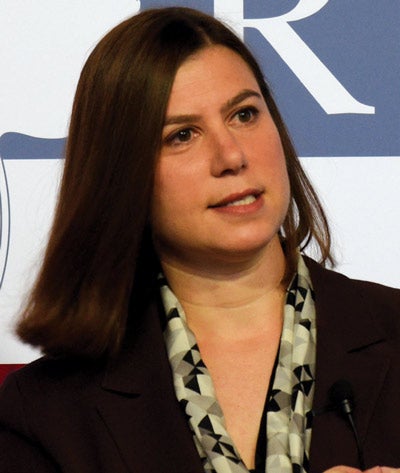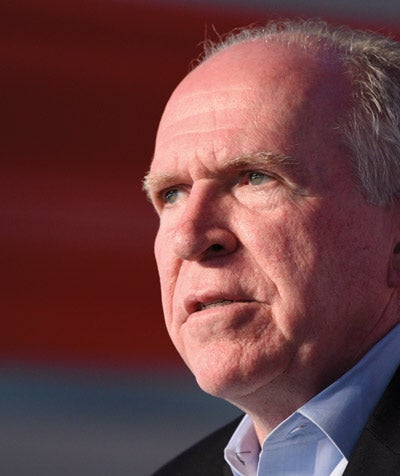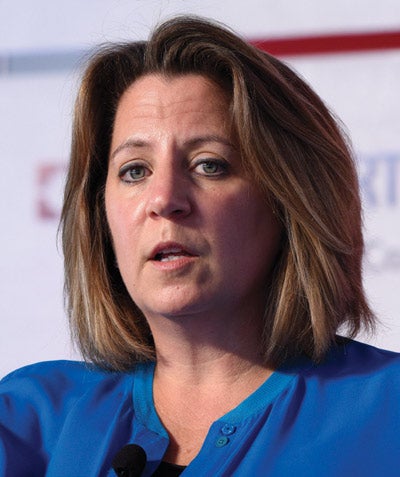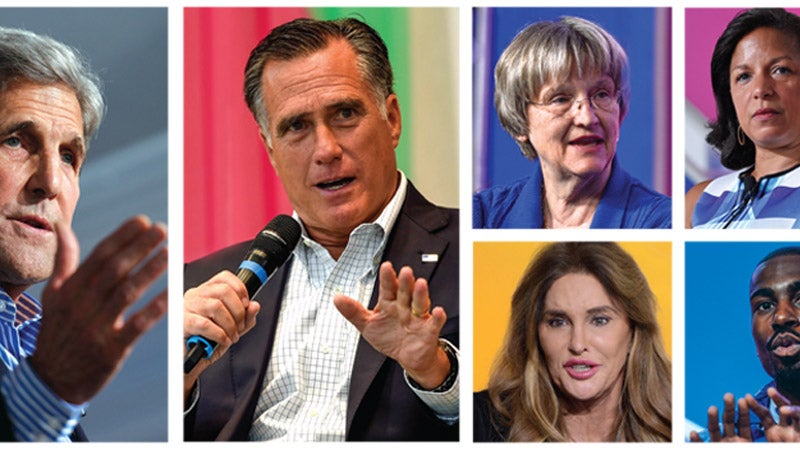Since its beginnings in 2010, the Aspen Security Forum—a gathering of leading experts and decision-makers at the center of international security—has become the nation’s premier event focused on keeping the country and the world secure. The 2016 Forum featured three full days of panel discussions and in-depth interviews with 80 experts, on topics including cybersecurity threats, global terrorist organizations, the European migration crisis, and the spread of Russia’s influence. The frankness of the dialogue makes the Forum a unique gathering where the nuance and complexity of the issues at hand can be fully explored, rather than boiled down to sound bites.

Speakers at ASF 2016 included CIA Director John Brennan; Lisa Monaco, President Obama’s assistant for homeland security and counterterrorism; Brett McGurk, special presidential envoy for the Global Coalition to Counter ISIL; Elissa Slotkin, assistant secretary of defense; Director of National Intelligence James Clapper; and Secretary of Homeland Security Jeh Johnson, who kicked off the event with an interview with Thom Shanker of The New York Times.
At the opening session, Johnson spoke about what he sees as the biggest threats to homeland security, including the new styles of terror attacks occurring across the globe. “The thing that most keeps me up at night,” he said, “is the next Orlando or San Bernadino–type attack by someone who has radicalized in secret. I believe that we’re going to be addressing these types of events for a while.”

Many speakers said that the ability of the internet to obscure radicalization is one of the most troublesome ideas facing the world today. “This generation of terrorists within ISIL has made sophisticated use of all the different types of apps and communication systems,” Brennan said. “The world can be their playground.”
Many conversations centered on different types of cybersecurity concerns, especially in light of the hacking of the Democratic National Committee computer systems, which had just taken place. Without commenting specifically on that investigation, Monaco said that it is “a serious, serious issue if there is deliberate intrusion for the purpose of coercing and influencing the political process.” She went on to explain that cyber threats are becoming more consequential as technologies advance. “The cyber threat is one that poses not only a national security but an economic security challenge for all of us.”

The rise of international conflicts came up frequently, including China’s naval expansion in the South China Sea, North Korea’s possession of nuclear arms, terrorist attacks across Europe, and ongoing conflicts throughout the Middle East. During an interview with NPR’s counterterrorism correspondent, Dina Temple-Raston, Brennan specifically addressed the future of the complex and ongoing conflict in Syria. “I hope there’s an endgame in Syria,” he said. “I don’t know whether or not [it] can be put back together again.” It was a comment that was picked up by media outlets across the country.
“Over the course of its short history, the Aspen Security Forum has helped to shape the national security agenda,” says Clark Ervin, executive director of the Institute’s Homeland Security Program. “As we enter next year with a new administration, my hope is that the Forum will continue to be a place for bipartisan dialogue that serves both policymakers and the public at large.”
Zach St. Louis is a public affairs coordinator at the Aspen Institute. Photos by Dan Bayer.


